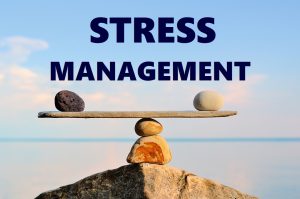Stress is an inevitable part of life, but understanding what it is and how it impacts your body and mind is essential in taking steps to reduce it. At its core, stress is your body’s response to a challenge or demand, triggering a series of physiological changes like an increased heart rate, heightened alertness, and the release of stress hormones like cortisol. While short-term stress can sometimes push us to perform better, chronic stress can lead to a multitude of health problems, including anxiety, depression, and physical ailments. Recognizing these effects is the first step toward managing stress naturally and improving your quality of life.
The Power of Mindfulness
Mindfulness has been proven time and again to be one of the most effective strategies for stress reduction. This practice involves bringing your attention fully into the present moment, free of judgment. Meditation, for example, allows you to focus your mind, detach from stressful thoughts, and foster calmness. Similarly, deep breathing exercises can help relax your nervous system and lower your heart rate in moments of acute stress. Even allocating just 10 minutes a day to mindfulness or meditation can significantly lower stress levels over time, training your brain to respond to stress in a healthier manner.
Nourishing Your Body
What you eat has a tremendous impact on your body’s ability to manage stress. A balanced diet rich in whole foods like fruits, vegetables, whole grains, lean proteins, and healthy fats nourishes your body and keeps stress hormones in check. Certain nutrients, like magnesium (found in nuts, seeds, and leafy greens) and omega-3 fatty acids (from fish or flaxseeds), are known to support brain function and reduce inflammation caused by stress. Equally important is staying hydrated and limiting your intake of sugar, caffeine, and alcohol, which can exacerbate feelings of stress and negatively affect your mood.
The Importance of Physical Activity
Exercise is one of the most potent natural stress relievers available. Physical activity releases endorphins, commonly known as “feel-good hormones,” which improve mood and reduce stress. Whether it’s a brisk walk, a yoga session, lifting weights, or dancing to your favorite music, engaging in regular physical activity not only keeps your body healthy but also provides an outlet for pent-up tension. Even activities like stretching and low-impact exercises can help relax your muscles and improve circulation, paving the way for a calmer mind.
Connecting with Nature
Spending time outdoors and connecting with nature can be incredibly therapeutic for stress relief. Nature has a calming effect on the mind, helping to lower blood pressure, heart rate, and levels of the stress hormone cortisol. Whether it’s going for a walk in your local park, gardening, or simply sitting by the ocean, immersing yourself in natural surroundings provides a necessary break from the fast-paced, technology-driven world. Even a few minutes of daily exposure to nature can significantly reduce feelings of stress and rejuvenate your mental state.
Building a Strong Support System
Humans are social beings, and having a network of supportive friends, family, or colleagues can make a significant difference in managing stress. Talking to someone who listens without judgment can help you process your thoughts and emotions, making stress feel more manageable. Knowing you have a circle to lean on during challenging times fosters resilience and a sense of belonging. Whether through a quick phone call, face-to-face interactions, or joining support groups, actively maintaining these connections plays a vital role in stress reduction and maintaining mental health.
Prioritizing Sleep
Good quality sleep is essential for effective stress management, yet it’s something many people overlook. Chronic stress often disrupts sleep patterns, but poor sleep can also heighten stress—creating a vicious cycle. To break this loop, establish a consistent sleep schedule, aiming for 7–9 hours of sleep each night. Create a calming bedtime routine that avoids screens, caffeine, or heavy meals late in the evening. Practices like reading, gentle stretches, or listening to soothing music can signal to your body that it’s time to unwind. When you sleep better, you’ll not only feel refreshed but also be better equipped to handle stress.
Setting Boundaries
Stress often builds up when we overcommit ourselves or struggle to say no. Learning to set healthy boundaries is key to managing stress effectively. Take a step back to assess your priorities and identify areas where you may be spreading yourself too thin. By saying no to tasks and responsibilities that don’t align with your goals or values, you create space for what truly matters. Alongside this, managing your time efficiently, such as breaking tasks into smaller steps or delegating when possible, can alleviate feelings of being overwhelmed and out of control.
Engaging in Hobbies and Leisure Activities
Taking time for hobbies and leisure doesn’t just feel good—it’s essential for stress reduction. Whether it’s painting, cooking, gardening, playing a musical instrument, or simply reading a book, these activities provide an escape from daily pressures while fostering creativity and joy. Making space for fun and relaxation in your schedule creates a balance between work and rest, resulting in a more fulfilling life. Prioritizing these moments of pleasure and self-expression reminds you to slow down and allows your mind to recharge.
Seeking Professional Help
While natural strategies for reducing stress can be incredibly effective, some situations may call for expert guidance. When stress is persistent or begins to interfere with your ability to function in daily life, it’s important to seek professional help. Therapists, counselors, or psychologists can provide tailored coping strategies to reduce stress and improve mental health. Additionally, practices like cognitive behavioral therapy (CBT) can help you reframe and manage negative thought patterns contributing to your stress. Seeking help isn’t a sign of weakness—it’s a proactive step toward feeling better and living a healthier life.
FAQ
Q1. What are some quick ways to reduce stress naturally?
A1. Quick stress-relief techniques include deep breathing exercises, taking a short walk in nature, practicing mindfulness or meditation, and stretching to release physical tension.
Q2. Can diet really impact stress levels?
A2. Yes, a balanced diet rich in whole foods and essential nutrients like magnesium and omega-3 fatty acids supports brain health and reduces inflammation, helping to alleviate stress.
Q3. How much exercise do I need to reduce stress?
A3. Even 30 minutes of moderate physical activity a few times a week can significantly reduce stress. Try to find activities you enjoy, whether it’s yoga, walking, or dancing.
Q4. Why is sleep so important for managing stress?
A4. Sleep helps regulate stress hormones and provides the brain and body with time to recover. Establishing consistent sleep patterns can help break the cycle of stress and poor sleep.
Q5. How do I know if I need professional help for stress?
A5. If stress becomes chronic, affects your daily life, or leads to severe symptoms like anxiety or depression, it’s time to consult a professional for support.




